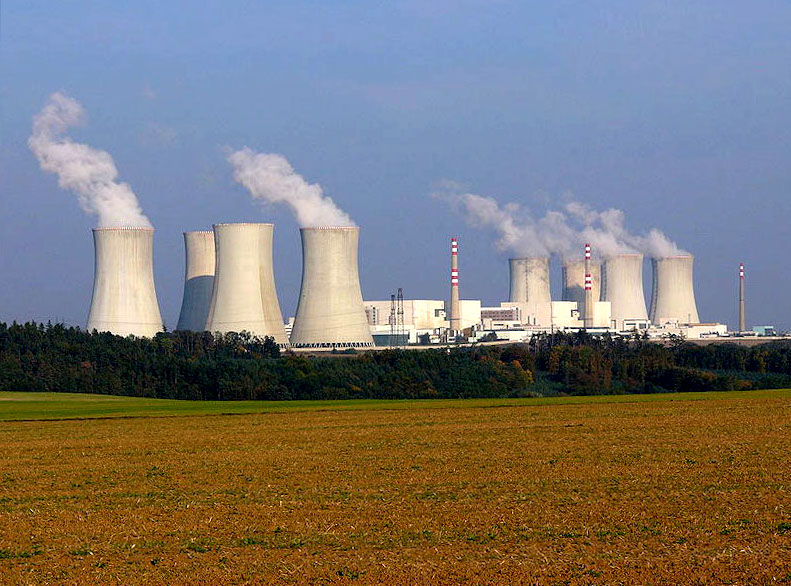Executive
Why the Nuclear Industry Always Has Its Hand Out
The market for nuclear energy is distorted, with plant owners addicted to subsidies and unwilling to find willing investors.

If there are plans for a new nuclear plant, you can bet that the owners are counting on some sort of taxpayer subsidies to fund it, whether it is tax incentives or subsidies.
A habit for subsidy for nuclear plant builders
A new report from the World Nuclear Association explains why this always occurs. According to the report, nuclear plants have huge upfront costs, especially construction costs. It is the owners’ responsibility to seek out investors who are committed to nuclear energy and who can bear the risk of unpredictable energy returns. It is just easier to blackmail ratepayers or deal with corrupt politicians rather than seeking investors from the private sector. The World Nuclear Association also notes that most nuclear power plants in operation were constructed during times of regulation, which meant that energy production and profits were more or less predictable. In an era of deregulation, prices and profits are less predictable and investors must be willing to take more risk. The WNA also notes that there are several challenges to building new nuclear plants, including potential cost overruns, unexpected changes in permit procedures and long-term waste disposal costs.
Recently, Energy Secretary Jennifer Granholm announced a $150 billion loan to reactivate in Michigan. The state is also chipping in $150 million to the effort. Governor Gretchen Whitmer claims that reopening the plant will create one thousand jobs and heat homes in the winter. What is not mentioned with all the fanfare were the terms of repayment, or the penalties for default. Those always seem to get lost in the shuffle.
Threatened shutdowns
In 2019, New Jersey’s Public Service Electric and Gas (PSEG Nuclear) threatened to shut down three of its plants if it did not receive $300 million subsidies from its rate payers. This blackmail should have been investigated.
In 2021, the state of Illinois approved $694 million in subsidies to prevent the closure of several nuclear plants. The owners gave the same reasons as others seeking subsidies: other forms of clean energy are cheaper and fossil fuel plants do not have the same disposal regulations as nuclear plants.
In April 2024, President Joe Biden signed a 40-year extension of the Price-Anderson Act, a key subsidy for the nuclear industry. The law provides that if a catastrophic accident happens at one of the nation’s fifty-four nuclear power plants the nuclear industry would be liable for the first $16.1 billion in damages. The federal government would be liable for the rest. An article in Environment America speculates that if the owners of nuclear plants had to carry full insurance against a nuclear accident, plants would be “uneconomical to build.”
An alternative
The World Nuclear Association report spelled out in simple terms how nuclear plants can be financed. It is not the sort of investment that is for everyone, however, it is up to investors to bear the risk of getting a nuclear plant constructed and operational. It appears all too easy for nuclear plant owners to strong-arm their ratepayers and governments into assuming great expense, especially when other forms of clean energy are available. Earlier this month Constellation Energy made a hard lobbying push to have nuclear subsidies added to the Commonwealth of Pennsylvania’s budget and they came up with bupkes. Unbelievably, they asked for $500 million with a straight face. It takes political will to say no to these companies. Governments should tell them to take out private loans or recruit more investors. It is time to call the bluff of Big Nuclear.
This article was originally published by RealClearEnergy and made available via RealClearWire.
Craig Shirley is Chairman of Citizens for the Republic.
-

 Accountability3 days ago
Accountability3 days agoWaste of the Day: Principal Bought Lobster with School Funds
-

 Constitution2 days ago
Constitution2 days agoTrump, Canada, and the Constitutional Problem Beneath the Bridge
-

 Executive1 day ago
Executive1 day agoHow Relaxed COVID-Era Rules Fueled Minnesota’s Biggest Scam
-

 Civilization4 hours ago
Civilization4 hours agoWhy Europe Shouldn’t Be Upset at Trump’s Venezuelan Actions
-

 Civilization1 day ago
Civilization1 day agoThe End of Purple States and Competitive Districts
-

 Christianity Today3 hours ago
Christianity Today3 hours agoSurprising Revival: Gen Z Men & Highly Educated Lead Return to Religion
-

 Civilization5 days ago
Civilization5 days agoThe devil is in the details
-

 Civilization4 days ago
Civilization4 days agoThe Conundrum of President Donald J. Trump












